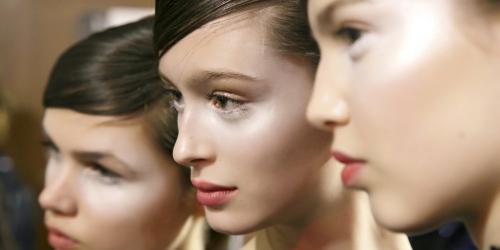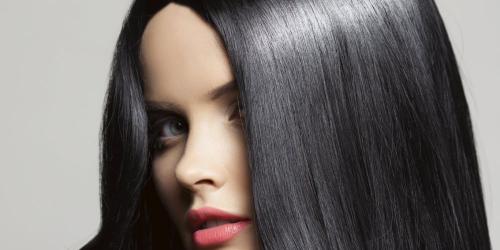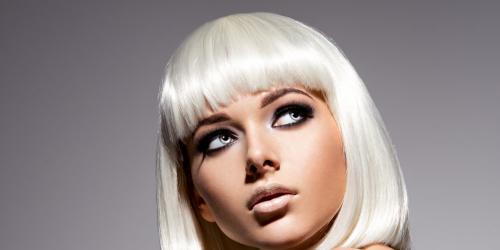Going out without makeup, for many women, is an inconceivable idea.
Without their mascara, their blush, their red, they feel like being naked, all naked, vulnerable. Others, on the contrary, have never considered makeup, or so little. As if living with these layers - sometimes thick - was a lack of spontaneity, a pretense, a mirage.
In this world invaded by selfies and their devices, these women claim the natural and make fun that we can discern their dark circles, their wrinkles, their defects. They propose another model and resist the injunctions of an ultra-refined society. They belong, unintentionally, to the broad movement of "no makeup" (or no make-up )
20% of French followers of no make-up
For the philosopher Bernard Andrieu, who has worked for a long time in the Nivea brand's observatory on the behavioral change of the French in relation to the body, "we are witnessing a return of the natural spirit, a bit hippie 70s but here recomposed with a desire for glamor. It is a process of intensification of self, a way to ensauvage his body, to feel it alive. Some are leaving the surface to go to the depth. "
This decline compared to makeup is now shared by 20% of French *, all ages.
Makeup, a mimetic mother-daughter transmission
But where does this connection to artifice come from? "It often finds its origin in mother-daughter transmission," said psychologist Diana Odon-Baylac. Our mother tells us, through what is called "silent education", how to be a woman. The girl will then often build in mimicry, sometimes - but more rarely - in opposition. "
Guilaine, 26, a creative director with a post-adolescent face, has never really managed to appropriate these tools of feminine culture.
"My mother did not wear makeup and raised me like a boy until I was 12 years old, to the point of wearing dresses as a punishment," recalls the young woman. In college, all the girls put on some gloss, so I followed the trend, but of course mine exploded in the back pocket of my jeans. Even today, my mother has never seen me made up, because I never show up to her that way, and when I meet her eyes, when I watch myself in the mirror, I make a wry face on purpose . No doubt it is because I can not take my femininity seriously in front of her. "
Despite this impossible transmission, Guilaine admits it, it happens to put red on his lips, not to go out but to give himself a consistency when it must emphasize his status as a woman of power.
"The role of makeup has evolved, analyzes Diana Odon-Baylac. If for a long time it had only a goal of seduction, it is above all a tool for the expression of our identity. "
Sarah, 40, a sales executive in a pharmaceutical group, remembers exactly her mother in front of the bathroom mirror, the mechanical gesture of mascara on the eyelashes, the hazelnut foundation at the end of her fingers that it is applied to the cheeks. The smell of the gloss when she kissed him before going out for dinner. However, Sarah did not repeat anything.
Today, she rarely wears makeup, or very rarely, when it takes her. There is no need for her to make a show of herself. "In college, already, when all my friends began to wear makeup, I did not understand. I think it was my way of being different. "
A burnout against the dictates of aesthetics
In adulthood, putting on makeup was synonymous with wasting time: "Frankly, I prefer to sleep a little more. She adds, "My mother thought much better about me that I was very natural. "
If some mothers take pleasure in passing on the art of applying makeup to their daughters, encourage them, guide them, others abstain. Because they do not even think about it, considering that access to femininity is an individual journey, clean path, useless to mark. Or because, consciously or not, they refuse to see a girl grow up that they are not ready to consider a woman.
Some women can stop artificially. Last summer, on the occasion of the promotion of the Here album, Alicia Keys was coming out "make-up free" . An asceticism that the American soul singer, invited on Lenny, feminist site of the actress and director Lena Dunham, justified by evoking her burn-out against the aesthetic dictates of the society of the spectacle.
"Every time I left my house without makeup, I was worried. And if someone took a picture? And if he posted it? These thoughts testified to my insecurity, my superficiality. One way or another, I always wondered what people thought of me. "
A new positioning against the tyranny of the appearance welcomed by the applause of other artists (including Beyoncé) who, since then, also follow the "make-up free" clichés on their Instagram accounts.
Renounce makeup to express one's "self" without artifice
This eulogy of unadorned skins was recently honored by Peter Lindbergh for the 2017 Pirelli Calendar. In lieu of the sophisticated clichés of previous years, the German photographer has this time brought together fourteen actresses (from Helen Mirren, 71, to Léa Seydoux, 31) whom he had posed completely stripped. A few months ago, models to the beauty almost non-existent parading for Haider Ackermann (fall-winter 2016-2017) or Gucci (spring-summer 2017) ...
"Makeup and absence are never neutral," says psychologist Agathe Pingusson. With or without, it is above all a message sent to others that we modulate according to the expected answer. We observe here the will to express a self that is not valued by artifices, as to validate that it is sufficient. "
Immortalized during a walk in the nature, the face "naked" after her defeat in the recent presidential election, Hillary Clinton was immediately congratulated by all the American newspapers for this gesture deemed a daring madness.
"Without makeup on her face, it's like she's back-born when she was Hillary Rodham, an accomplished and aggressive lawyer, who was successful while rejecting the rules of patriarchy," wrote for the occasion. Quartz online magazine.
Taking a distance with cosmetics
Delphine, 36, executive assistant, short hair and face now naked, spent almost twenty minutes each morning in front of the mirror in her bathroom. A daily ritual. Introducing herself to nature was one of her worst fears, to the point of keeping her mascara on her romantic nights.
"But little by little, by gaining confidence in myself, I also became aware of all the harmful compounds that I stored every day on my face, even when the products are supposedly" big brands, "says the young woman . So I stopped everything to put only a simple organic day cream. "
A "greening of oneself", in the words of the anthropologist David Le Breton, right in the air of the time and visible even in the sales of organic cosmetics in France which, in 2015, knew a growth of 7%.
A return to nature shared by brands
At the same time, sales of perfumes, make-up and everyday personal care products were down 1%, according to NPD. "In this movement of distance, there is a desire, for these women, to regain power over their image, analyzes psychosociologist Marie Cipriani-Crauste. The underlying idea is to try to find its true nature by being nature. "
The CSA poll "Les Françaises dans le miroir" also revealed that 72% of them associate the natural with the word "beauty". Echoing this, a recent study by Bangor University in Wales suggested that the vast majority of men would prefer women when they wear an average of 40% less makeup. Some brands are not mistaken. From L'Oréal to Chanel, "no make-up" products are developing, like tutorials on YouTube.
Women without makeup less competent and less intelligent?
Sylvie does not really know what to think about it: "As soon as I make up, it's inevitable, I'm immediately noticed, and it's a bit tiring. For my colleagues, it's a way of saying that I should do it more often, every day actually, but it tends to discourage me in my initiatives, "she admits. This emancipation against the norm, synonymous with the pluralities of women of the time, may well reap the praise of public discourse, it seems to stumble on the real, especially in the professional world.
A discrepancy between our declarations and our mental representations recently put forward by Jean-François Amadieu in The Society of Appearance (eds. Odile Jacob): "Concerning recruitment, presenting oneself in the natural world is the most courageous step, because the most harmful in terms of the chances of access to employment, confirms the sociologist. All the CV testing campaigns that we have conducted have shown that a woman who displayed without makeup was automatically deemed less competent and less intelligent. "
In other words, it will take a little more time before attending a real end of appearances.
(*) Source: CSA study, "French women in the mirror".



